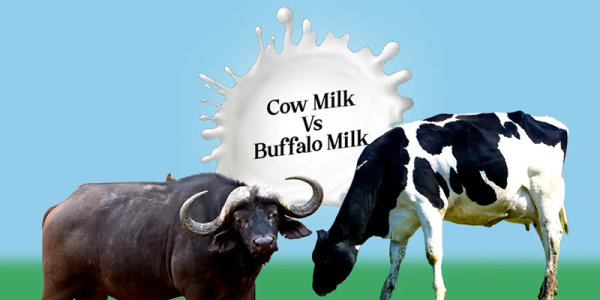
Milk is considered a complete diet because it contains many essential nutrients, such as protein, calcium, vitamin D, vitamin B12, and phosphorus. Calcium and vitamin D are especially important for bones, teeth, muscles, and immunity (Milk Benefits).

In such a situation, most people prefer to drink cow or buffalo milk. Both are beneficial for health, but when it comes to these two key nutrients, some differences are visible between them (Cow vs. Buffalo Milk Benefits). Let's learn about them.
Calcium Comparison
Calcium strengthens bones and is essential for everyone, from children to the elderly. Cow milk provides approximately 120 mg of calcium per 100 ml, while buffalo milk provides approximately 180 mg of calcium per 100 ml.
Buffalo milk is thicker and richer in nutrients, and therefore has a higher calcium content. This may be beneficial for those who need more calcium, such as pregnant women or those suffering from osteoporosis.
Comparison of Vitamin D
Vitamin D helps with calcium absorption, and a deficiency in the body can weaken bones. Cow's milk contains less fat, so the body digests it more easily, improving the absorption of its vitamin D.
Buffalo milk contains more fat, making it thicker and more difficult for some people to digest. It's a different matter that both milks naturally contain limited amounts of vitamin D, but commercially available fortified milks contain it artificially, increasing its amount.

Which milk is better?
Buffalo milk is superior in calcium, but cow's milk is also considered superior for better absorption of vitamin D, making it more digestible for children, the elderly, and the sick. Buffalo milk is a better option for those seeking more energy and nutrition. Therefore, it's best to choose the right milk based on a person's age, digestion, and needs.
PC Social media